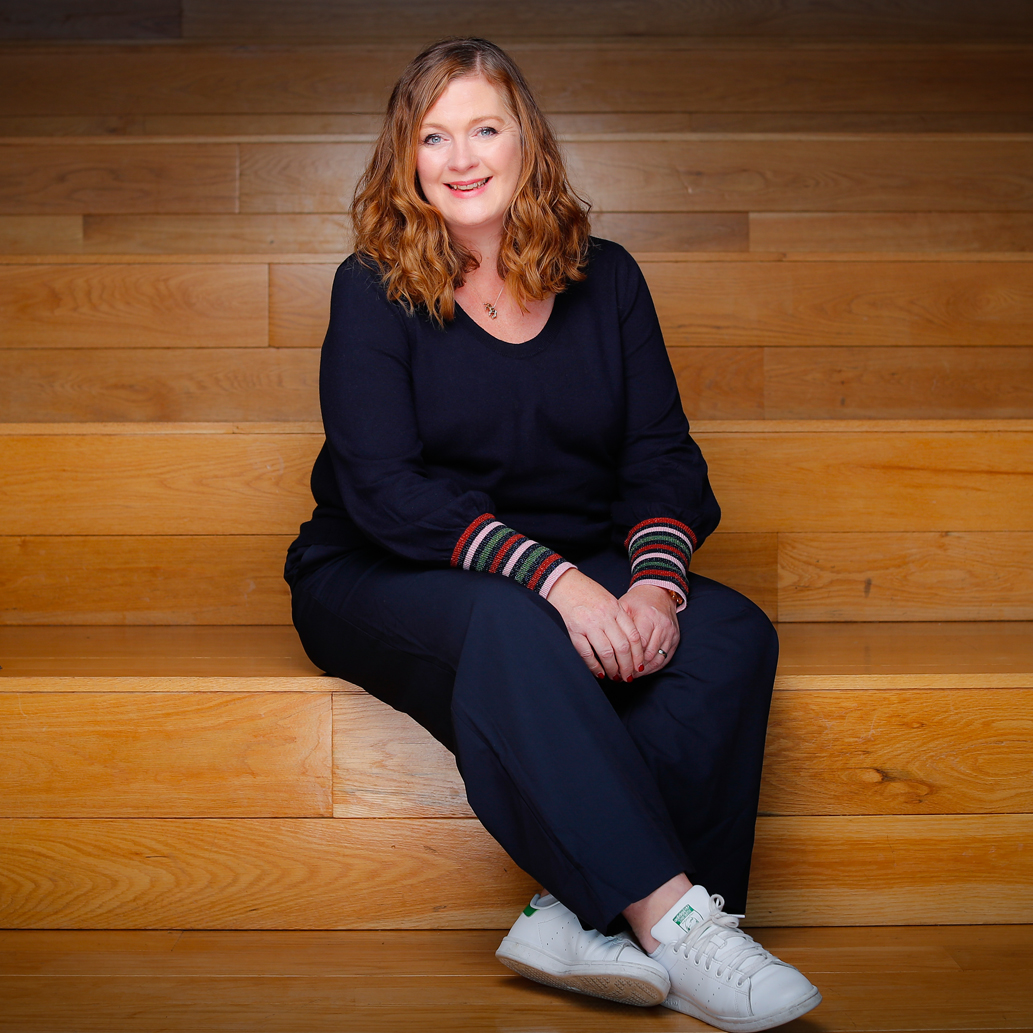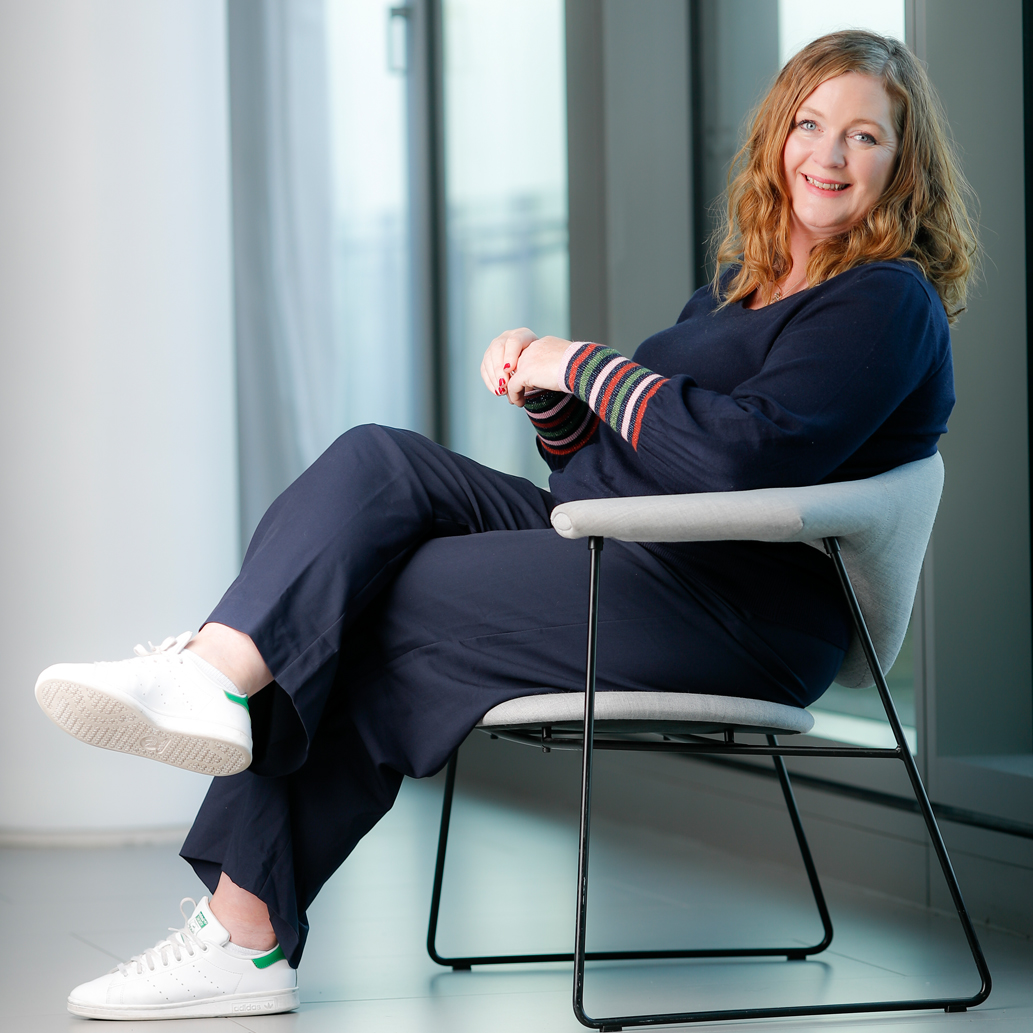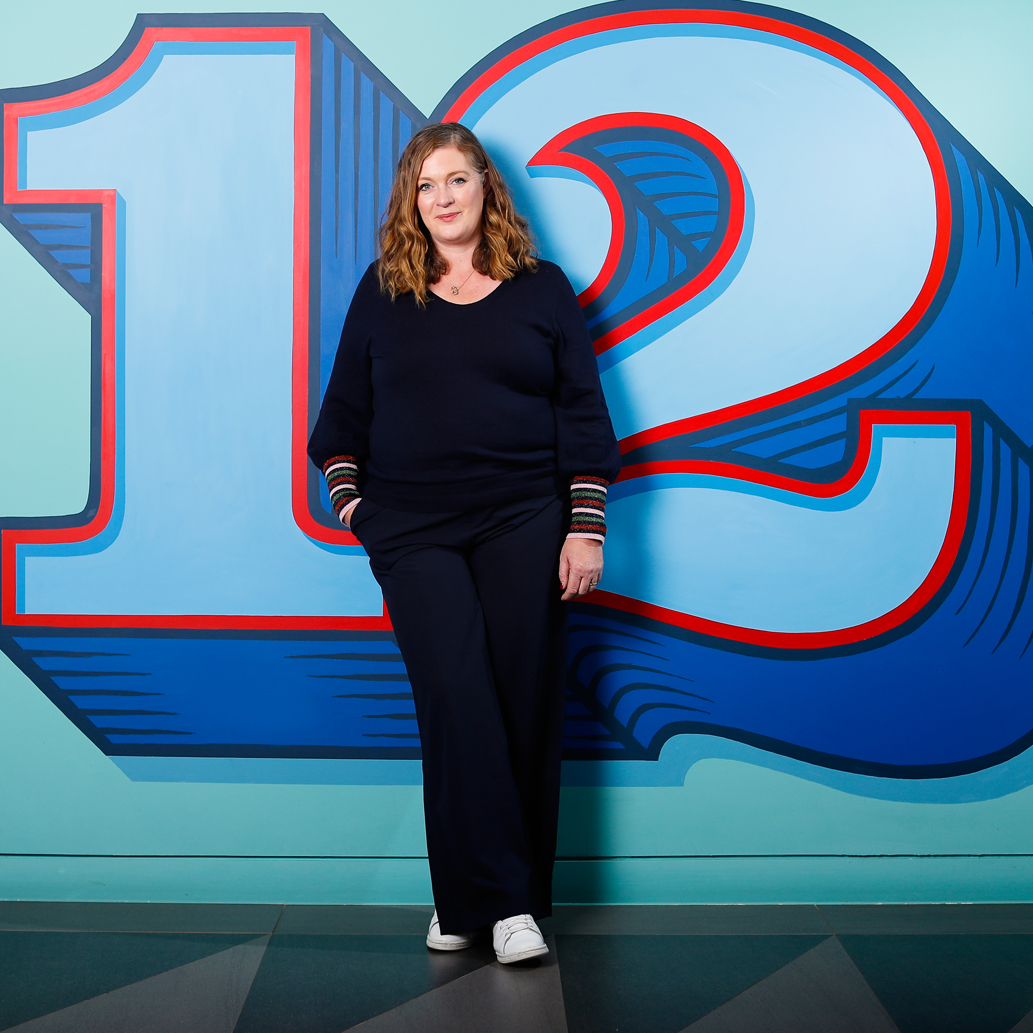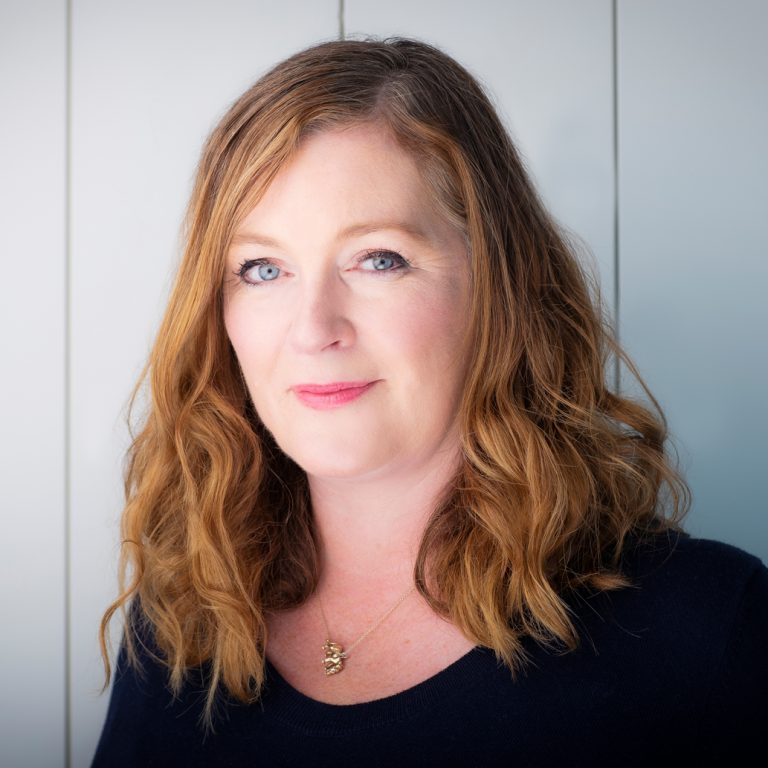Helen, tell us about your early life and how you strayed onto the path for a career in HR?
I graduated in the early 1990s – this was slap bang in the middle of the recession, so not what could be termed great timing. Nevertheless, armed with a degree in business studies and a strong leaning towards media management I set out to start my career. In terms of interest at this point, HR was not a driving factor of my career ambitions and with a somewhat ambiguous objective, I began by taking just about any job – and some could only be described as terrible. Unperturbed, I was keen to experience as much as I could and almost subconsciously, I could see the impact on organisations where there was a strong learning culture, could see the benefits and I often found myself taking on a learning element within some of those roles, often quite organically. So, fresh out of uni and in my early 20s, I started to gain a clearer idea of what I wanted to do and a career path of sorts began to form. Sure enough, a role in L&D came along which galvanised everything, along with some exposure to personnel, as was then. It’s a personality trait of mine that I don’t like busking, playing it by ear, I want people to be convinced that I know my stuff. I wanted to strengthen my credibility, so I self-funded to study for the CIPD at night school. With qualifications gained, suddenly opportunities began to open up, and a clearer understanding of the people element of business began to take form in my mind, and along my first generalist role came with the NHS. Ironically, to date, it was the hardest and most rigorous selection process I’ve faced. As a place to start, you’d be hard pushed to find one that tests your mettle so vigorously as the NHS, and in retrospect I have the greatest respect for the resolute stoicism that everyone in the health service demonstrates, no matter what level or role. I really earned my stripes there, and I was working with a highly intelligent and challenging management team, together with a high volume of employee relations issues, and strong financial and commercial rigour. I look back at this earlier exposure and testing times and realise that it was the sort of grounding that would set any practitioner up for life. However, there was something niggling me that I couldn’t ignore for long, and that was the allure of and passion for, media. It was an itch I simply could not scratch and I knew that I would have to change track.

That is unusual, most people that start in the NHS are sucked in for life.
Yes, despite the rigour and relentless pressure, the length of tenure in the health service is a testament to people that enter that world as a calling, for most it’s truly vocational, and those who stay are a hundred percent behind its purpose. I value our NHS deeply, however, I’d always been interested in media and creative industries, so for me it was all about a passion move. I joined MCPRS (the music and performance copyrighting company) which was a short-term step that, luckily for me led on to ITN, one of my dream jobs. News broadcasting was an incredibly dynamic world to be in and in the two years I was there, I began to work at a more strategic level, partnering with the resourcing management team. This was when the industry was on the cusp of several new technologies – from faster, easier ability to self-shoot video, to the early days of digital. There were significant challenges to both, from cultural change, to embracing these new ways of working, through to ensuring robust development of existing staff, and talent acquisition with these new skill sets. I’ll never forget the mentoring and support that I received there. The fast pace and the very nature of breaking news every day, was both exhilarating and challenging, and I loved it. I also experienced how technology can challenge people with existing skill sets and force the necessity to adopt new ways of operating. That of course has been a compelling and unavoidable narrative of our time and I learnt of the important role that employers must play to enable people to stay relevant and skilled in the face of change.

Tell us about your next career step?
As the new millennium dawned – as much as I loved ITN – I made a move to SAP to take up a role as HR Consultant. This was Y2K, and after a time where technology was dictating a hectic pace, suddenly all industries were readying themselves for the potential IT crash, and a complete reversal of fortunes for many. Suddenly and surprisingly, nobody was investing in new software and for SAP and many other tech-based businesses, staying afloat was all about stabilisation and consolidation, whereas before, it had been all about acceleration and growth. Unquestionably, it was an odd set of circumstances that was unnerving. It must have been such a shock for tech players that knew nothing other than meteoric rise in living memory. There was a challenging task ahead and first up, we had to gain a grip on some cultural issues, if we were going to adapt to the new landscape at that time. Initial focus was on behavioural change and cultural shift, to drive the next phase of growth. As with all large scale change, not everyone was on board for that, and that brought its own challenges, from a talent retention and acquisition point of view. But the change simply could not be side-stepped or avoided, we needed to adapt and embed new ways of operating, it was great experience. It was intense and absorbing work, but the experience of working under such pressure was invaluable to me. Once this project had finished, a role came my way with a new tech business that really intrigued me, and it couldn’t have been more different from the corporate culture of SAP.
The new role was with the pioneering online holiday booking company called Deckchair.com which was owned at the time by Bob Geldof. It was a frenzied, fizz of energy – right at the heart of those so-called duvet days and new ways of working… the dotcom bubble. There was only a base level of personnel support, so my role as Head of HR was a new entity in the organisation. The business had grown at speed organically and, most of the talent was straight out of uni, with their much sought-after coding and development degrees – their stock was sky high and they knew it. That brought a whole load of untested cultural challenges – flexible working to the extreme – with both long hours and self-selected working practices. This was really unchartered waters for employers and HR was charged with finding a new operational framework. We needed to maintain the entrepreneurism and embrace the spirit, whilst putting in place some structure and framework. It was breath-takingly full-on at times and, also immensely fun. It was, in the truest sense of the phrase, a work hard/play hard culture. There was a huge opportunity for growth and experientially, it was a testbed for the future and I look back on that time and the general direction of travel – in terms of the online customer experience – as days of pure dynamism and innovation, much of which of course, have long been adopted as the norm. What was being achieved, with relatively rudimentary technology by today’s comparison, was truly ground breaking.

Tell us about the next stage of your journey.
My next stop was Planet 24, most famous for The Big Breakfast, which was its flagship programme at that time. The culture was, at times, hair-raising and it was a highly pressured environment – dynamic, frenetic and often incredibly challenging to manage. Very quickly, it was as if anyone that was in the independent TV production at one time or another, had worked for Planet 24 and on The Big Breakfast, in their fledgling careers. It was the proverbial revolving door. The development opportunities and fast trajectory was the ultimate empowerment to grow your career at speed. Unconventional, even eccentric at times, you learnt your craft hard and fast.
Surely it would be impossible to "police" a workplace such as that, with any level of discipline and rigour?
If you go into any senior HR role hoping to police it, you will come unstuck pretty quickly. I’ve never considered that as the role of HR. You need to be in tune with the business and It’s about developing culture that works and supporting and adding value wherever it is possible to do so. In a dynamic and loose environment, credibility is fundamental, and the best way to gain credibility is to listen, act and partner with the business to solve problems.
Your next move to the BBC must have been a stark comparison.
Yes, after Planet 24, anything would be. I joined the BBC, which of course had an incredible heritage and time-honed structure. At the time, Greg Dyke was Director General and the organisation was in the throes of a seismic change programme as it headed towards Charter renewal. In the middle of all that however, came the Hutton Enquiry, the outcome of which was critical of the BBC – and Greg fell on his sword. Such was the measure of the man, I haven’t seen such outpouring of disbelief from staff as there was when he resigned. Again, my time there was dominated by change management – and eventually, I decided my time was up and I wanted to try new things again. It was a complicated, frustrating and matrixed organisation at the time, in the throes of seismic change, but always a fantastic one – and I’ll always be rooting for it. My next stop was to Tiger Aspect Productions, back into the indie sector.
So why do you think you felt compelled to go back to a smaller, independent TV production company?
I definitely missed the buzz and immediacy that a smaller business brings, but Tiger was a different proposition to Planet 24. It had been around for a relatively long time, in TV terms. It had a unique culture and I can remember my boss, Andy Zein saying; “you can do what you want, just don’t break the culture”. For me, at the point of joining, the primary role was to focus on professionalising the people function, so that we could be seen as commercial partners to the business. In terms of HR, we needed to build a team with the capacity to support a business that was a key player in a fast-moving sector, and we did just that. We were then acquired by Endemol, which coincided with me having my second child. So, I decided it was probably time to work differently – with the hope of some balance, so that I could devote time to a young family. At the time, I had a long commute as I live in Whitstable. I felt I had the credentials to strike out on my own, I had recently qualified as a coach. So with my own business, I went on to run a portfolio of coaching clients, along with organisational design and change projects, as well as consulting with a number of SMEs, designing and delivering leadership programmes. This was my life for the next six years. However, I really did miss being part of something, being part of a team and as life has a habit of doing, an opportunity eventually arrived that would enable me to change track. I’d just completed a contract with Ogilvy, helping lead their change programme, when Michael Frohlich, the CEO, asked me to stay and lead the people function.
The inescapable image of London-centric media companies is Edina and Patsy guzzling Bolly. But marketing and media today is a much more sober and serious sector.
It’s safe to say that Patsy and Edina wouldn’t survive today – long gone are the days of the long boozy lunches. There was to be some considerable change, to prepare the business for the future. Last year, Ogilvy UK brought together all of the different operating companies into one. From the top, Michael Frohlich had to build a highly functioning leadership team, which included myself, very quickly. The necessity to work in a very different way, collaborating differently with each other, meant we had to stand shoulder to shoulder together. I really don’t think you can underestimate the impact of that level of change. This evolved into the strategy that we termed “one Ogilvy”, a consolidation of the organisation, which made very sound business sense. But the implications were significant to some people who perhaps worked for Ogilvy & Mather and the other operating companies, some for 20-plus years. There were fond memories of halcyon days set against the inescapable realities of the present.
So how do you build authenticity and believability when people simply do not want to change?
There is no such thing as overcommunication in the process of transition. Staff surveys will invariably tell you what you know anyway and, inevitably, the things you don’t want to hear. But in terms of keeping change on schedule and to a plan, it’s a hard road of campaigning and communicating the vision, in order to keep everyone in the direction of travel. If people don’t feel they’re on that journey, you will lose them, it’s that simple really. Change is hard and you have to accept that. Traditionally, the nature of businesses in the media are surprisingly paternalistic, and we’re changing that. From a leadership point of view, the new way of working requires courage and trust in empowering and allowing people to be more autonomous, and that trust and transparency is very much a two-way street. That leads on to one of my other key focuses, employee experience, and we’ve partnered up with our customer experience team to look through their lens at what it’s like to work here. Our people are beginning to see some of the measures pay off in terms of structure, career paths and opportunities. What is also beginning to have impact is our focus on bringing in some new and different voices and perspectives, increasingly recruiting from a wider base than just the tight media fraternity. The signs are we’re gaining traction and there’s a rise in appreciation for the new changes coming in.
What are the signs that things are improving and what are the next objectives?
We knew that true transformation of the business would take about five years. Collaboration is winning over the siloed, departmental mindset, and that has been monumental. We recently launched our diversity and inclusion strategy, and there is a real sense that everyone is now pulling in the same direction. That is quite hard to make tangible, but I’ve just had first glance of our most recent employee survey results and everything is looking up on the positives. In a nutshell, we are re-building. Our internal networks are collaborating together brilliantly, and you can really feel it. We launched our fifth network this year, which is our neurodiverse network – Ogilvy Rewired – which was started by one of our brilliant apprentices. This year for us, has all been about discovery. Finding out about our talent, scrutinising ourselves and our ways of working. And it’s really starting to pay off, as we prepare for 2020 and beyond.
Is there a noticeable change from the influences of Millennials and Gen Zs on older colleagues?
I think there are some real hang ups about
generational differences. Millennials are 30, and we’re still talking about their supposed love of avocado on toast. It’s patronising. I think it’s much more about ensuring that all workplaces are inclusive so everyone can bring their whole self to work, regardless of their background, or age. Ultimately, we all learn from each other. It’s about an adult to adult relationship with staff.
Constant change is so disruptive, is there a sense that there will never be normality again?
For us it’s about staying curious, keeping an eye on what’s going on – not just with technology, but other areas for growth, and conversely how we as people are changing our habits and how we live – and therefore, how it will impact our business. We need to anticipate changes in how we operate and people’s expectations. It sounds like an HR cliché but taking employers along on the journey is crucial. The culture to keep on learning is so important.
The physical and psychological work culture is no more, increasingly it's about gigging contributors, there is a case to say, "that way lies chaos"!
I definitely think there are challenges; most businesses now will need different thinkers or contributors for specific projects; TV for example does this exceptionally well – you cast different teams with complementary skillsets to ensure success of the project. To make it work you have to have agility, flexible thinking, and openness to change. In addition, I think workers now have different expectations of their employers. This is definitely a sea change. We are now questioning big businesses on equality, their position on climate change and caring for the environment for example, with ethics top of the list for staff. We know that talent now looks up a company’s gender pay gap before they’ll even interview, as well as their D&I policy. I’m personally really excited to be part of it all, and to see what is next for Ogilvy as we continue to grow.












